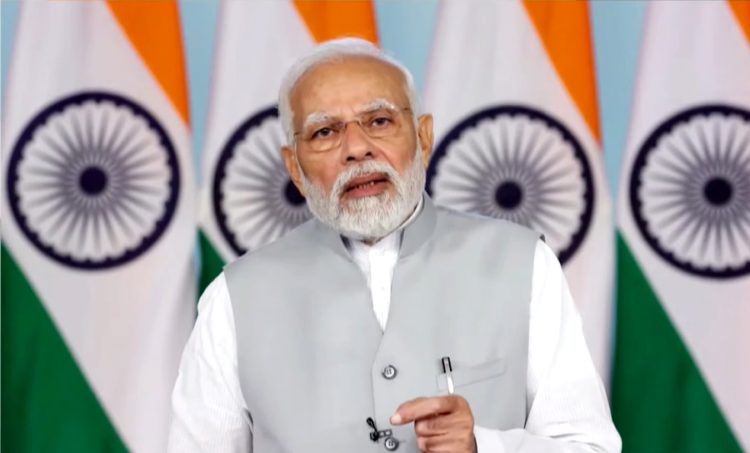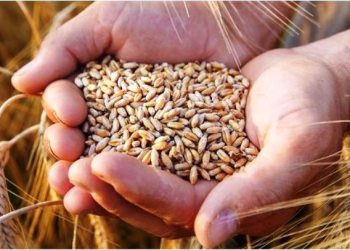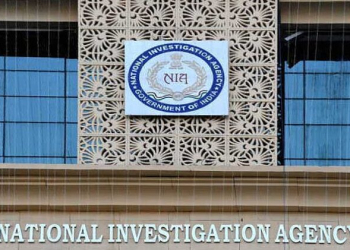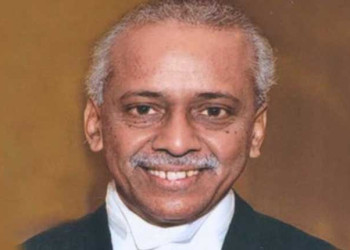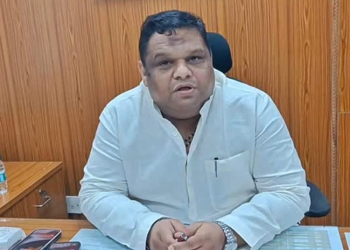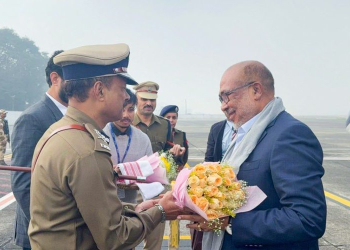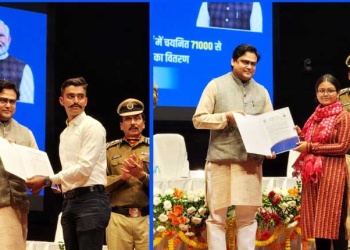New Delhi: Emphasising that environment is not just a global cause, but the personal and collective responsibility of every individual, Prime Minister Narendra Modi, in a message shared at the inaugural session of the 22nd edition of the World Sustainable Development Summit (WSDS) here on Wednesday, noted that “the way forward is through collectiveness rather than selectiveness.”
“Environment conservation is a commitment and not compulsion for India,” observed the Prime Minister, while underscoring the transition towards renewable and alternate sources of energy, and the adoption of technology and innovation measures to find solutions to urban challenges.
“We have adopted a multi-dimensional approach to chart a long-term roadmap for sustainable and environment friendly lifestyle,” he added.
At the inaugural address of the three-day summit, being held on the theme of ‘Mainstreaming Sustainable Development and Climate Resilience for Collective Action’ by The Energy and Resources Institute (TERI), Guyana’s Vice President Bharrat Jagdeo made a clarion call to significantly focus on the principles of equity and justice at forums such as the G20 and the COPs.
He pointed out that it is impossible for many developing countries to achieve Sustainable Development Goals (SDGs) without financing.
“The small countries not only need climate finance, they need a reform of the global financial system to achieve sustainable development,” said Jagdeo.
He also pointed out that climate resilience and sustainable development are interlinked. “Most of the countries in the Caribbean are fiscally and debt-stressed. Unless these issues are addressed now by some of the multilateral agencies, these countries will never be able to have a sustainable, medium-term economic framework, leaving much less to address the catastrophic damage of weather related events,” Jagdeo added.
He underscored the criticality of balance in the discourse on sustainable development in order to find lasting solutions.
“We need to reduce the production of fossil fuels, we need carbon capture, utilisation and storage, and we need a mass transit into renewable energy. It is the combined action on all three fronts that will deliver lasting solutions. But often the debate is between the extremes, and sometimes it clouds the search for solutions. Balance is crucial,” observed Jagdeo.
In his opening address, Environment, Forest and Climate Change Minister Bhupender Yadav informed the audience that the second batch of cheetahs from South Africa have been successfully introduced in Kuno National Park in Madhya Pradesh on February 18.
“The vision of correcting ecological wrong into ecological harmony is taking shape and is being reflected in the grassroots,” he said.
The Environment Minister noted that combating climate change, biodiversity loss and land degradation transcend political considerations and is a shared global challenge. “India is contributing significantly to be a part of the solution,” he said.
India’s taking over the G20 Presidency has brought global attention to the discourse around sustainable development, especially in the UN critical decade of action, he noted.
“Living in harmony with nature has been traditionally in our ethos and the same has been reflected by the mantra LiFE or Lifestyle for Environment coined by our Honourable Prime Minister Narendra Modi. The mantra, which focus on nudging individual behaviour towards leading a sustainable lifestyle, has received attention and appreciation from world leaders and leading experts across the globe and has been included in the cover decisions of Sharm el-Sheikh Implementation Plan as well as COP27,” he said.
The COP28-President designate, Sultan Al Jaber of the UAE, in his keynote address, noted that the theme of this edition of the WSDS is “a call to action” and will be central to the agenda of the UAE COP.
“We will aim to unite all parties around inclusive and transformational progress. The goal of keeping 1.5 degree Celsius alive is just non-negotiable. It is also clear we cannot continue business-as-usual. We need a true, comprehensive paradigm shift in our approach to mitigation, adaptation, finance, and loss and damage,” said Al Jaber.
Observing that India is on its way to becoming the third largest economy, he asserted that India’s sustainable development is critical not just for the country, but the world.
He added that the UAE will explore opportunities of partnership with India in its high growth, low carbon pathway. “As India takes forward the presidency of G20, the UAE supports India’s focus on transformative actions for cleaner, greener and bluer future with just and sustainable development for all,” Al Jaber said.
In his welcome address, TERI Governing Council Chairman Nitin Desai underlined the link between conserving resources and promoting sustainable livelihood, as well as sustainable consumption and sustainable production.
“The idea of sustainable lifestyle has to become an important component of the global dialogue on sustainable development,” he said.
With the world approaching the crucial midpoint of the 2030 Agenda and the sustainable development goals, TERI Director General Vibha Dhawan said: “It has been more than 50 years since the 1972 Stockholm Conference and since then the world has made many strides in bringing to the forefront the issues related to the environment, biodiversity loss, climate change, and has achieved many milestones in integrating sustainable development into the public, private and societal discourses. But we still have a long way to go especially in terms of horizontal and vertical integration of sustainable development across spheres.”
The three-day summit will have ministers from across the world, top government representatives, political and thought leaders, and chiefs of international organisations deliberating on critical themes of G20 leadership and Green Development Pact; equity and climate justice; driving and financing sustainable development; inclusive green growth; energy transitions, and sustainable lifestyles.
(IANS)



